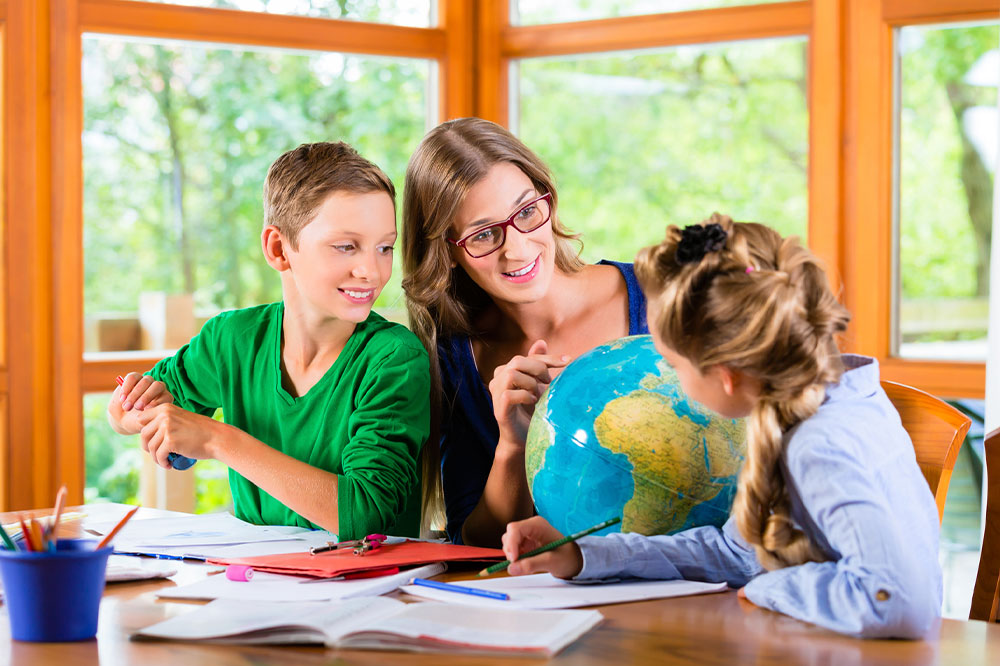7 effective classroom resources for teaching
Classroom and teaching resources are vital for improving teaching methodologies and students’ learning process. Simple to imbibe in the teaching process, teaching and classroom resources completely transform the teaching and learning experiences. They support better interactions between teachers and students, meet the learning needs of different students, and help make teaching fun. With these resources, teachers and students can co-create knowledge and even have the flexibility to assess its applications in practical scenarios.

Wondering which are the different types of teaching and classroom resources that can help attain these objectives in the classrooms? Here are some of the most-used resources, both traditional and modern, being used in classrooms these days:
Charts and posters
Though traditional, this is one of the most effective teaching and classroom resources in classrooms across the country. Charts and posters use the visualization technique with minimal text, which is considered to have a better impact on the grasping ability of students. They help students visualize and focus on various topics, facts, ideas, and events.
They are a good way to capture and retain children’s attention on subjects they might otherwise find tough or intimidating. Involving students in poster-making activities helps them to connect different ideas and associate with them from a broader perspective.
Atlases and maps
Just like charts and posters, atlases and maps are a great way to challenge students to think and visualize the world beyond their city and country. One of the best teaching and classroom resources for geography classes, they enhance the delivery of instructions and allow students to grasp the subject better.
These resources are a great way to provide context and relevance to what is being taught and allow students to crack complex ideas, distances, and situations.
Flash and flip cards
This traditional teaching resource has been used for ages in classrooms and remains relevant. They are small handheld cards with information on both sides. For instance, one side may have a question, and the other may have the answer written.
Such a model takes away the rote teaching and learning system and works as a super effective memory aid for learners. This model is especially beneficial for students who respond better to visuals. These cards can be used for practically any subject and help students learn vocabulary, historical dates, math formulae, and much more.
Plays and dramatization
Integrating your classroom teaching with dramatization and plays does much more than make your subject interesting. Imagine, instead of just memorizing historical dates and events through textbooks, students are given a chance to be a part of these events!
The students not only understand concepts better but through role-plays, they also develop their creative potential through scene enactments. This helps students to develop critical thinking and problem-solving skills and teaches them how to work together in groups.
Flipped classroom model
One of the most popular teaching and classroom resources used in classrooms, flipped classrooms are a perfect example of blended learning. In this, students are introduced to new material at home and encouraged to do their homework and practice learning on it during their sessions at school.
This is an excellent method to help students develop their critical thinking abilities where they can research and access content in newer ways. It increases the potential for friends and family support and makes students self-directional and independent.
Digitalized games
Computer games are much more than just about having fun. They are an excellent way to overhaul classroom teaching and learning processes. Game-based learning has been used in classrooms for a while and has received positive responses from teachers, students, and parents.
A perfect example of ICT-based education models, games are teaching and classroom resources that can make any subject fun. At the same time, they also enhance the “visuomotor skills” of the students by sharpening their critical thinking abilities, eye-hand coordination, and cognitive skills.
Films and videos
Who doesn’t love to watch movies? Imagine using this very powerful medium as one of your teaching and classroom resources. Visual media has proven to be extremely engaging and creates an impact on the minds of students. It allows them to not just think critically but also makes them question things and, in turn, research to satisfy their queries.
Documentaries, videos, and even TV shows are also a good way to understand things from multiple perspectives. It also creates strong digital citizenship communities of young learners who can become a voice in world issues.
These teaching resources are being used in classrooms across the country, and many more teaching aids are effective in building communities of empowered learners. All you need to do is match your subjects with your student’s age and learning abilities and see your classroom transform.